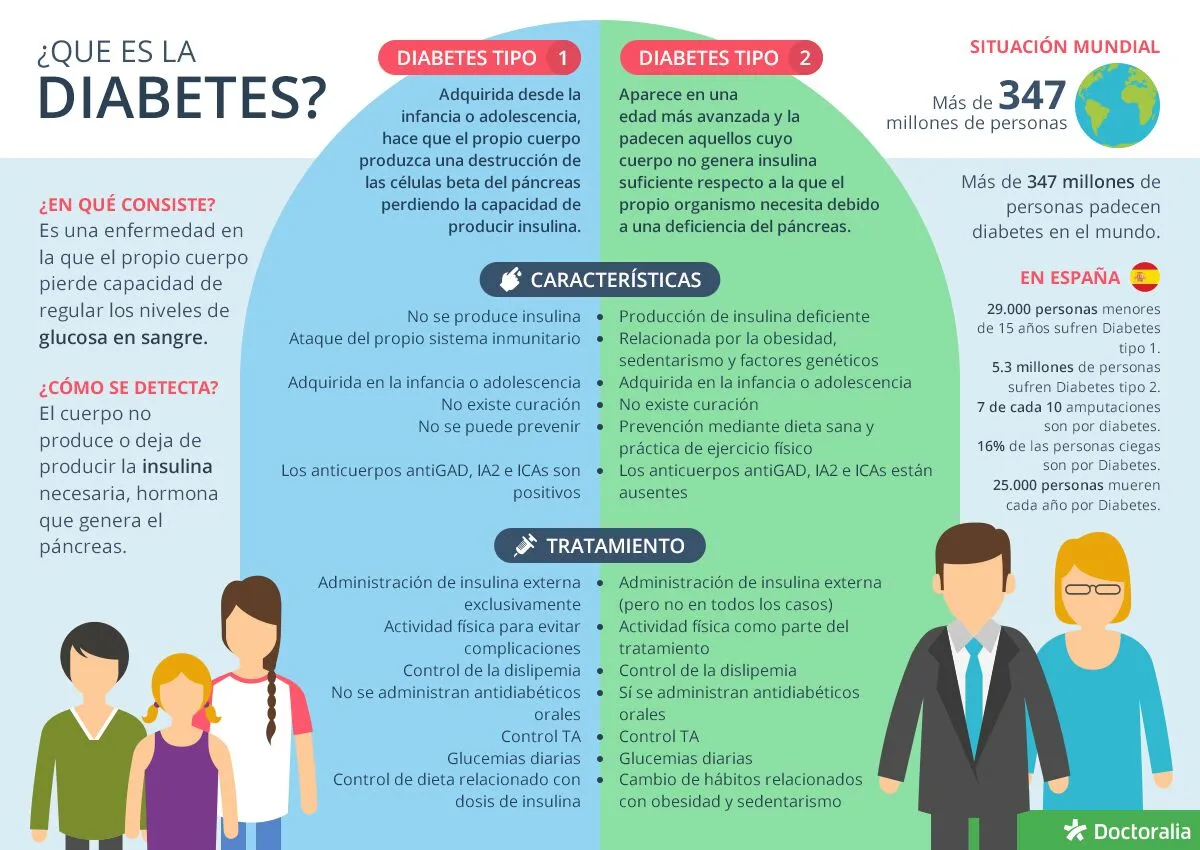It is estimated that more than half of those affected do not know the disease.For this reason, and due to the doubts that patients with diabetes about the management of the disease usually arise, the Spanish Family and Community Pharmacy Society has answered the most frequent questions that are usually asked in primary care consultations.
1.Will I have to make a regime a lifetime?
A correct food is important in any person, but even more in the diabetic.Together with the exercise, the diet is the basis of the treatment, which does not mean that you have to follow a strict regime for life or that there are foods that cannot be tested again.Knowing what foods are recommended and which cannot be integrated into normal life the healthy habits of the population.
2.Am I going to be blind?
One of the most frequent complications of diabetes is the appearance of retinopathies, which are related to the duration of the disease.Therefore, given the first symptoms of loss of vision or other ophthalmic alterations, a doctor must be used.
Also, to prevent diabetic retinopathy, strict control of blood sugar, blood pressure and cholesterol must be had.There are currently also procedures to deal with this problem, such as laser photocoagulation.
3. Can diabetes affect my sexual health?
There is the possibility that it does affect, producing impotence or erectile dysfunction because the arteries that irrigate the genitals can be clogged, like other organs of the body.Therefore, the more diabetes and sugar levels are taken, the less risk there is that this occurs.
4.I have been diagnosed with diabetes.Will I have to prick?
When pills treatment is not enough to control blood glucose, insulin is needed, that is, click.However, the use of drugs can be sufficient if accompanied by changes in life styles, food is improved and physical exercise is regularly performed.
5. What is the diabetic foot?
The appearance of feet injuries is one of the most frequent consequences of diabetes, which can evolve to ulcerations and infections and, in addition, in severe cases they can lead to gangrene and, even, in amputation.Therefore, it is very important to choose adequate footwear, observe your feet to detect any injury or injury and treat it before it evolves.
6.I follow more and for a longer time.Can it be for diabetes?
Yes. Diabetics have more infections than the general population, especially respiratory, urinary, white tissues and periodontal disease.Hyperglycemia produces a worse immune response and, in turn, infections produce hyperglycemic decompensation.
7.What is glycosylated hemoglobin?
Hemoglobin, a protein that circulates in the blood and transports oxygen, binds to glucose forming glycosylated hemoglobin.When the amount of blood glucose is the greatest, the more it joins hemoglobin and its union percentage indicates what the average amount of circulating glucose has been during hemoglobin life (120 days).
In general, it must not exceed seven percent, although the objective must be individualized and established by the doctor.Its measure allows you to know the average sugar level in recent weeks, while a blood glucose exam indicates the state of diabetes control at that given time.
.


